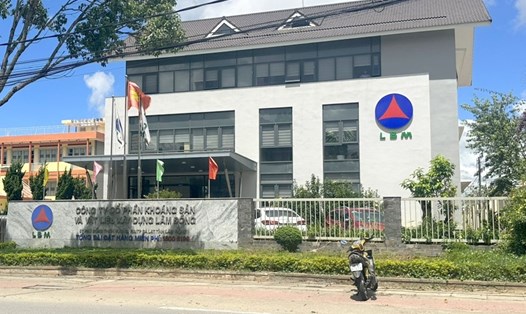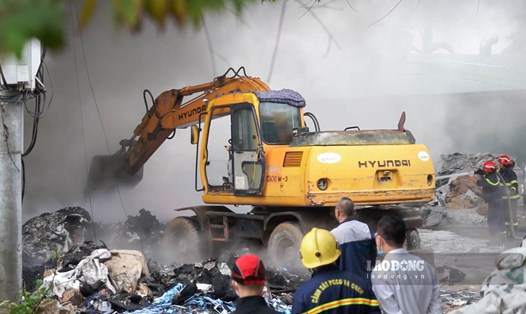Just "parachute" to become a landowner
In the Thang Long bridge area (located in the two communes of Vong La and Hai Boi, Dong Anh district, Hanoi), in addition to the name Thanh Hien - a famous woman and considered a "landlord" who monopolizes rice fields to rent out warehouses as a place to gather goods, there are a series of other landlords who are also willing to cut up land under the bridge to build temporary houses, parking lots and pickleball courts.
According to the observations of the reporter team, there are many construction works in the Thang Long Bridge protection corridor area due to land encroachment by some individuals. People living around the area said that this situation was initially just temporary tents set up to sell water.
Over time, the encroachers poured soil, concrete, surrounded the area with corrugated iron and roofed it to form solid, sturdy factory buildings that became large-scale production, repair, and livestock farming sites, and even permanent residences for some households.
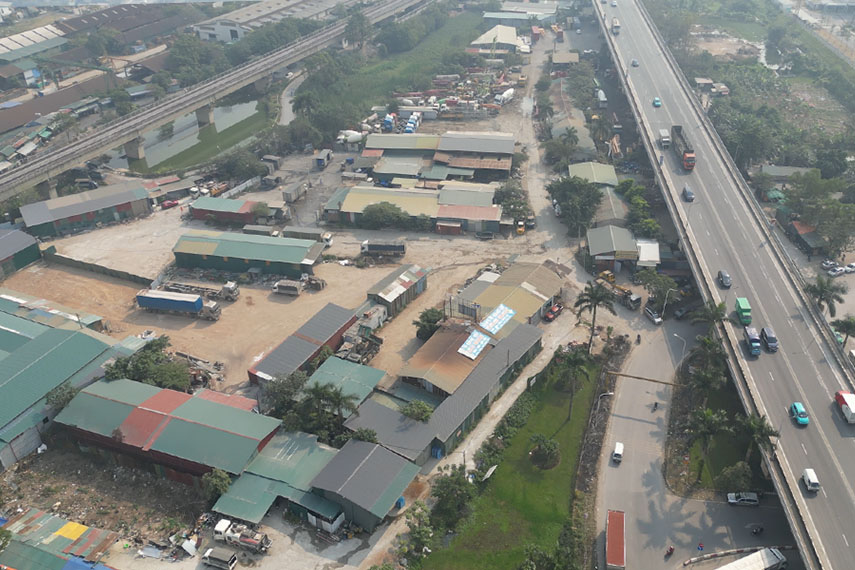
Many people living in the safety corridor area under Thang Long Bridge do not hesitate to share that, because they do not have a house but have vacant land, they just stay there, and every month and every quarter "follow the rules" fully, they will live peacefully until the government takes it back.
To find out whether the land rental market under Thang Long bridge is as easy as the residents living here say, posing as people in need of renting land, through contacts, reporters received an appointment from a man named Vu.
Through introduction, Vu claimed to be the owner and co-owner of a chain of pickleball courts called Quinn's Sport in Hanoi.
Currently, Vu's group has just completed another pickleball court (a cluster of 6 courts) at a location close to the wall under Thang Long Bridge. Revealing to reporters, Vu admitted that he had previously wanted to rent land from Ms. Thanh Hien to run a sports playground. However, because it is agricultural land, the risk is high and it is easy to be handled by local authorities.
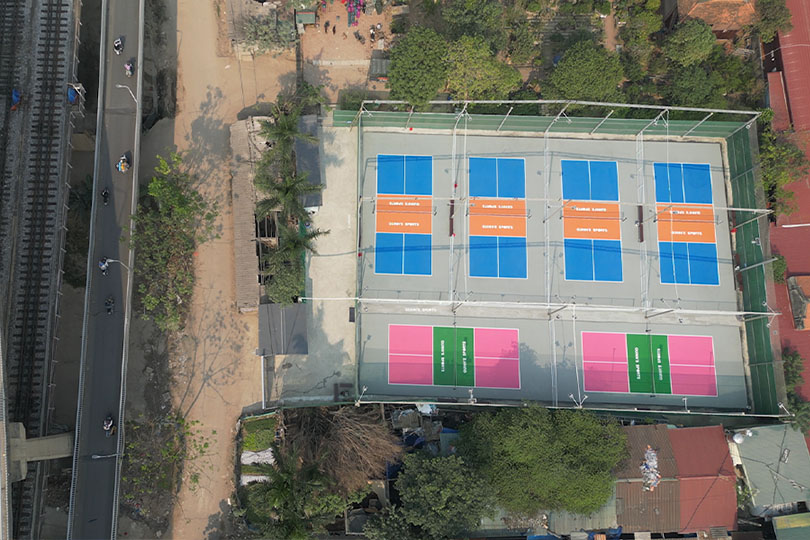
Therefore, Vu decided to choose the land right under the bridge to make a tennis court for safety purposes and to avoid inspections from local authorities.
“This is my family’s land so there is no problem. The only thing is that there will be a road project going through it soon so we can’t build a larger field. I also don’t dare to build a roof because it requires a lot of capital, about 350 million VND. If we are inspected and forced to dismantle it, it will be too risky,” said the owner of Quinn’s Sport pickleball field.
When reporters asked whether building a yard right under the Thang Long Bridge was a violation, Vu confidently replied: "It's fine because this is land for growing perennial crops."
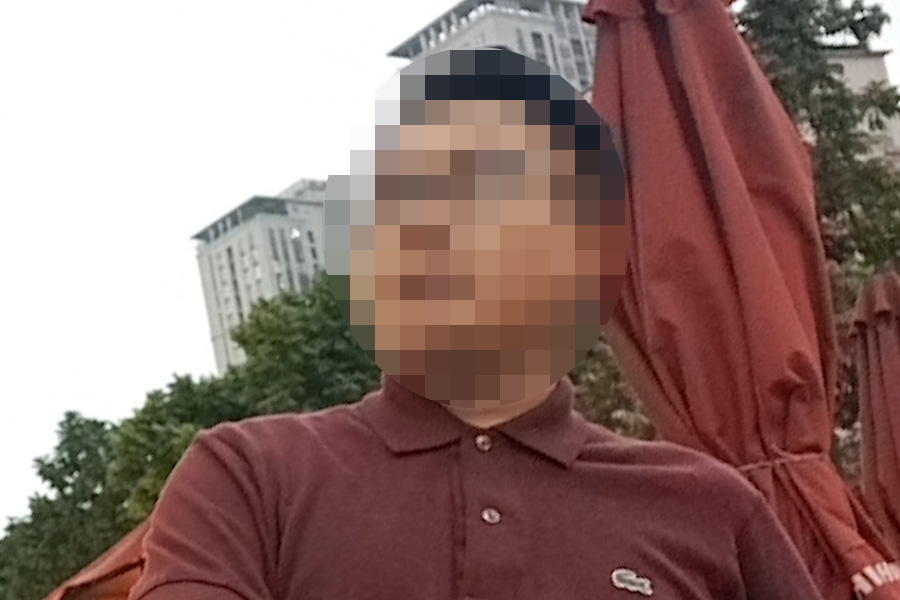
Despite his assertion, this man mentioned the case of a series of illegal pickleball courts on agricultural land in Thanh Tri district (Hanoi) that was recently handled as reported by Lao Dong Newspaper.
Vu appeared lucky and told reporters: “There is information that pickleball courts will be inspected soon. Dong Anh District is also about to become a district, so if you want to invest in anything here, you have to do it right away. Because when you become a district, everything will be more difficult and expensive. Currently, I am not focusing on revenue when building this court, I just need to complete it before becoming a district.”
The owner of this pickleball court also claims to have many close relationships and relatives who own a lot of agricultural land that can be rented out as a factory in this area.
A series of encroachment and illegal constructions under Thang Long Bridge
Continuing the journey as customers who need to rent land, warehouses and buy land "parachuting" to do business in the area along the Red River in the border area between the two communes of Vong La and Hai Boi (Dong Anh, Hanoi), reporters have seen a series of illegal constructions here.
Following the introduction of the locals, we were connected to Ms. Anh - who introduced herself as having a 700m2 plot of land near the gate of Vong La fishing village. Ms. Anh said that the price of each meter of land here is only about 10 million VND because there is no certificate. However, construction is not difficult, if we agree to buy the land, Ms. Anh will help us contact her family to ask for legal help.
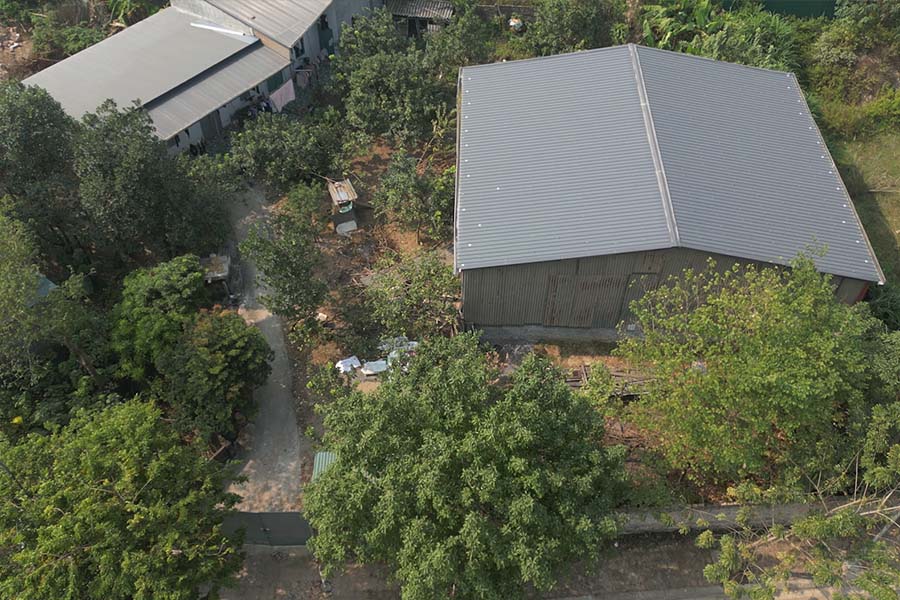
"This land belongs to my sister. If she buys it, I will give her 10 million VND/m2. This land is stuck, without a certificate, but after buying it, she can still build a house, just don't build high floors to avoid being an eyesore. As for building a flat roof house or a level 4 house with an attic, it's fine.
If you build a house of about 70 - 100 square meters, the cost of making the law will be about 100 million VND. My house is right next to here, built in 2019, 3 floors also only cost 100 million VND for making the law. If I buy, I will ask my sister to help. She is a resident here, has been doing business for many years, so she will have a very good relationship with the government," Ms. Anh revealed.
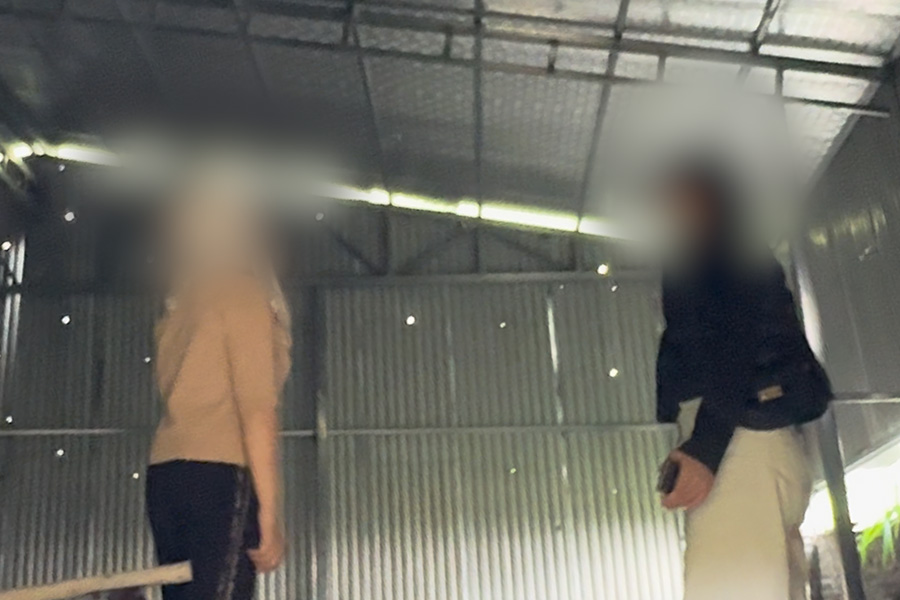
According to Ms. Anh, parachuting and then occupying land to build private houses and warehouses is done by many people here. Around the warehouse - where we are standing, most of the houses are built illegally, the construction is done by "making the law" right at the door.
“All the land they build houses on in this riverside area is land without a certificate. From the beginning of the road to here, no house has a certificate, just build a small house. The land with a certificate here is sold for 70 million VND/m2.
When this warehouse was built, only the roof was added, and my sister's family had connections in the commune, so it didn't cost much, just a few tens of millions of dong for legal fees," Ms. Anh informed.
All the sources who guided us on how to make laws, rent agricultural land to build illegal factories in places like the area under Thang Long bridge, and alluvial land along the Red River all had the same characteristic, claiming to be acquaintances of the owners of the "Phuong Thu fish raft" - people who were described as influential, with extensive relationships in the locality, because of their ability to arrange and make laws on public land in a favorable manner.









